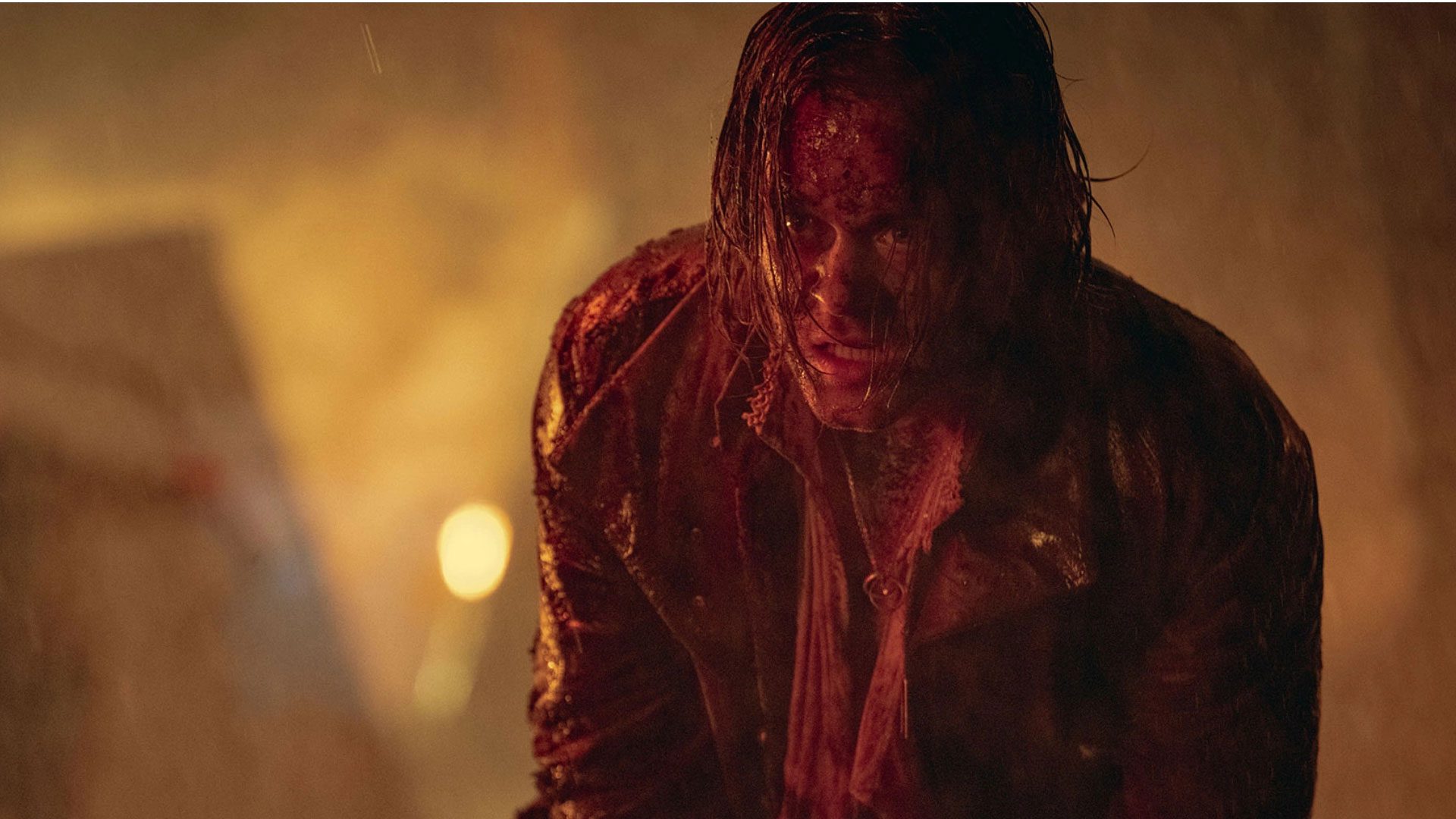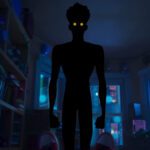REVIEW: The Witcher: Blood Origin Miniseries (2022)
2022 has been rife with some of the worst travesties ever put to T.V. screens, such as Amazon’s The Rings of Power, Disney’s Willow, and every single MCU entry. With only a matter of days remaining in this year of perversions, audience members would not have been remiss in allowing themselves a moment of hope that they would be spared from another charade of entertainment in 2022. Like an evil genius hoping to ruin the holiday season and the last moments of the year, Netflix swooped in at the final yard line with The Witcher: Blood Origin. This irredeemable act stole an irrefutable victory, taking home the trophy for not only the worst show of the year but possibly the worst show in history. Not only does Blood Origin take notes from The Rings of Power in terms of the writers never even reading the source material — taking the term “bastardized adaptation” to a whole new level — but this show also excels more than any other entertainment entry of the year in its ineptitude, lack of talent or creativity, and frankly, its astonishing ability to flaunt every basic rule of the English language and simple story structure.
There are too few words to distill the countless problems of Blood Origin properly, and this article needfully falls far short of the length necessary to truly describe the atrocity committed to screens. Call the U.N. because the Geneva Convention’s torture clauses have been violated.
**Spoilers**
Blood Origin takes place 1200 years before the main Witcher series and follows the vile Princess Merwyn in her struggle for ultimate power. Rather than being given away in an arranged marriage to end 1000 years of bloodshed, she stages a coup that slaughters her brother, the king, as well as the kings and royal families of all three of the main elven kingdoms at a peace summit where her brother would have given her away to one of these other kings. The generals and armies of the three kingdoms want no peace whatsoever, their violent tendencies utterly opposed to the peace summit, so they join forces with Merwyn and the sage Balor to commit this coup and unite the three kingdoms in a peaceful and solitary empire. Balor adds his contribution to this coup with a monster given to him by a mysterious entity from another universe, introducing the first monster ever seen in the world. Merwyn’s banished former lover Fjall’s family is killed in this slaughter, Merwyn slitting the throat of his sister with her bare hands.
With the help of a traveling Bard, the Lark, who’s constantly told she’s the bestest ever with the best story possibly conceivable despite never displaying any acumen to basic competency, Fjall swears vengeance on the now Empress Merwyn. Through unexplained teleportation, plot contrivances, and shallow characters with no motivations or arcs, this band of heroes grows to seven before they infuse Fjall with monster blood, making him the first Witcher. The heroes aim their new abomination at the Empress in hopes that he’ll kill her and Balor’s monster. The enemies are all vanquished; however, Fjall has hulked out for some reason and needs to be killed by his new lover, the Lark, to end his rampage. In their assault on the castle to kill the beast and the Empress, Balor’s monolith is destroyed, ripping tears in the universe and allowing countless monsters and humans from the multiverse to enter this world. If that plot sounds convoluted and diametrically opposed to the themes of the Witcher novels, that would be a correct assessment. Logic, talent, and skill are wholly absent from this utter abomination.

Blood Origin’s greatest sins revolve around its writing, specifically its dialogue. This show has been compared to a CW walking and talking, sitting and talking, and standing and talking show. There is virtually no action, as the entire series is merely scenes stitched together like Frankenstein’s monster, relying entirely on its inept dialogue. Elves from the equivalent of 200 A.D. speak with completely modern vernacular, with no attempts made for more ancient or sophisticated-sounding dialects. This grates on the senses, but even more so because of the quality of the modern language that they use. Similar to Rings of Power, the dialogue repeats itself in incredibly uninteresting ways, such as: “Don’t tell me that you have forgotten.” “I have not forgotten because you told me not to forget.” “I’m glad you have not forgotten.” If a television script could physically sound like nails on a chalkboard, Blood Origin’s would have been able to accomplish that effect. Even the big inspiring speech that the Lark gives to inspire the people to rise up in rebellion against the evil empire — in one of its many pop culture rip-offs — she is forced to sound like a pathetic imitation of a human being because of the horrendous dialogue.
If Blood Origin had been one of those AI-generated scripts, the characters’ fundamental inability to sound like human beings would be explainable. This robotic and artless writing speaks to an untalented and unsophisticated mind. As a result of the writers’ lack of intelligence, they assume that the audience has none either. This is where Minnie Driver’s needless expositional voiceover constantly swoops in to remind us of what we just saw. Her V.O. ensures that the audience can count from 1 to 7, that they know that things change when kings die and that the person shown limping is, indeed, limping. There is absolutely no trust in the audience from the writers. For the very few times that they actually show and do not tell us something, they immediately undercut it by having the voiceover repeat what was just shown to make sure we understood the most basic of scenes that we just watched.

In addition to the bafflingly poor dialogue, Blood Origin’s scripts are rife with contrivances, coincidences, unexplained character changes, and an utter lack of basic continuity within mere minutes. Some examples are: Fjall commits no crime but is thrown in jail with the Lark because they have to meet somehow. The underage girl that the Lark randomly saves from being sexually assaulted by an evil white man just happens to be one of the most potent oracles in history, leading to the exact prophecy that the Lark needs. The Lark randomly changes her mind because the plot needs to happen. Michelle Yeoh does not want to join the party of heroes, but the Lark says, “But what if you did,” and this immediately changes her mind because she needs to join the party somehow. Fjall says that the ghost tribe doesn’t exist, that it’s a legend, but in the very next scene, he gets into a fight with Michelle Yeoh and declares that his family was right to wipe out the ghost tribe. How can he both think it’s a legend and know that his family wiped them out? Lastly, Michelle Yeoh somehow makes it from the heroes’ camp to the Empress, asks for money and soldiers, and sneaks away from those soldiers to hire sellswords with the money she was given before setting up an ambush in the woods for the soldiers using the sellswords, so they can all take the soldiers’ armor to sneak back into the city. How did she do all of that in less than a couple of hours without being seen by the soldiers sent to accompany her? This is the epitome of “and then” storytelling rather than “because, therefore.”
Speaking of Michelle Yeoh’s ability to seemingly teleport from the camp to the city, to the sellswords, and to the ambush, this is not the only instance of perceived fast travel. In a single evening, the Lark sings in a Tavern, assaults some evil white men, and gets thrown in jail for this assault. In the same amount of time, Fjall stops an assassination attempt against the Princess, sleeps with the Princess, gets banished for sleeping with the Princess, and travels from Xin’Trea to Skellige over land and an ocean, a journey that could reasonably take over a month. He accomplished this all in a single day. Once again with Fjall, he’s injured in a fight in Skellige before sailing back across the same ocean and trekking to wherever Michelle Yeoh is; only then does he tend to his injury. There are other examples of this strange occurrence. Just like in Rings of Power, these writers have no concept of space or time. It’s as if they are unaware that things happen between scenes and that the next scene does not mean the next moment.

The design and artistic style of Blood Origin is startlingly basic. The architectural designs are all flat and textureless, resulting in the most uninteresting of visuals. Occasionally, they steal real designs from India, China, and Egypt but not from the Slavic, German, or English roots from which the source material is derived. None of the three elven kingdoms are distinct from each other in design or appearance. All three kingdoms are flushed so full with hundreds of accents and diversity, homogenizing all three in an overall bland fashion. None of the societies are allowed to feel unique because that would require the exclusion of other design and cultural influences. Even the look of the monsters is bafflingly uninteresting. Similar to Witcher season 2, Blood Origin defiantly refuses to use any of the countless monsters at their disposal from either Witcher lore or the mythologies that inspired it.
The production side of things displays no more talent than any other area of Blood Origin. The CGI is shoddy at best, with some exterior shots looking as if the artist forgot to add textures. Occasionally in an attempt to cover up the lousy CGI, scenes are graded to be incredibly dark — in the style of Game of Thrones season 8 — making it virtually impossible to see what’s going on. Costumes are stitched together at random, giving Spirit Halloween the clear victory in a quality competition. With the notable exception of the music, there is near zero value in any area of this production, from its writing to its technical aspects.

The wokeness of Blood Origin is also without compare. The diversity and inclusion of this show are more rampant and shoved in your face more aggressively than any other product of the last decade. The primary villain, Merwyn, is portrayed as a victim and misunderstood, and the show nearly takes her side in all of this. The only justification she ever claims for slaughtering her brother and her lover’s family is that she doesn’t want to share power with a man. She is the biggest monster on the show, far surpassing the other villains and the actual monsters. However, the writers want the audience to feel for her and support her through her heinous deeds. Merwyn is irredeemable, no matter how much Netflix wants the audience to believe that she’s a feminist role model.
This is not the only example of the writers’ intentions for a diverse character not matching what they show. The Lark Is constantly positively affirmed, straight-up told that she is the woman who is the key to everything in a prophecy, and the villains believe she is a threat because she has such an amazing story. This is all opposed to what is shown about her. She’s portrayed as manipulative, disinterested in helping others, violent without cause, horrific to her family and friends, and lacking basic competency. She is also without even the semblance of a story besides, “I guess I’ll walk over to this castle and accept my victory.” That is not a story worth telling. The writers’ constant need to have characters say that the Lark has a good story is simply self-congratulatory nonsense, trying to convince themselves as much as the audience that they wrote a good story.
Blood Origin breaks the lore at every opportunity, having zero in common with its source material. However, a full lore breakdown would take far too long. If you are interested in finding out the true lore and history of The Witcher that Blood Origin ignored and mocked, check out the three-part Geeks + Gamers lore series, as well as their video counterparts.
There is not a single iota of creativity within the atrocity that is Blood Origin. The writers are more willing to rip off Star Wars, Game of Thrones, The Incredible Hulk, and numerous other franchises than even remotely touch The Witcher. Even if Beau DeMayo was inaccurate in claiming that the Netflix Witcher writers vocally “mocked the source material,” every single decision within this production not only mocks the source material but mocks every audience member conned into viewing Blood Origin, winner of the title of the worst television show ever made.
Witcher: Blood Origin Miniseries (2022)
Plot - 0.2
Acting - 1
Progression - 0.1
Production Design - 1
Adaptation - 0
0.5
Why?
Even if Beau DeMayo was inaccurate in claiming that the Netflix Witcher writers vocally “mocked the source material,” every single decision within this production not only mocks the source material but mocks every audience member conned into viewing Blood Origin, winner of the title of the worst television show ever made.
Comments (2)


I love to see complete garbage like The Witcher: Blood Origin and The Rings of Power get called out for what it actually is. Hopefully this will spark a major change in the entertainment industry but heh, if they don’t change then we have plenty of independent creators to look to who will provide us with genuine escapism.









The entire genre is being ruined. Each worse than the last. I gave ROP and WOT a bit of time, but Willow and Blood Origins were impossible. Could not take minutes of it.